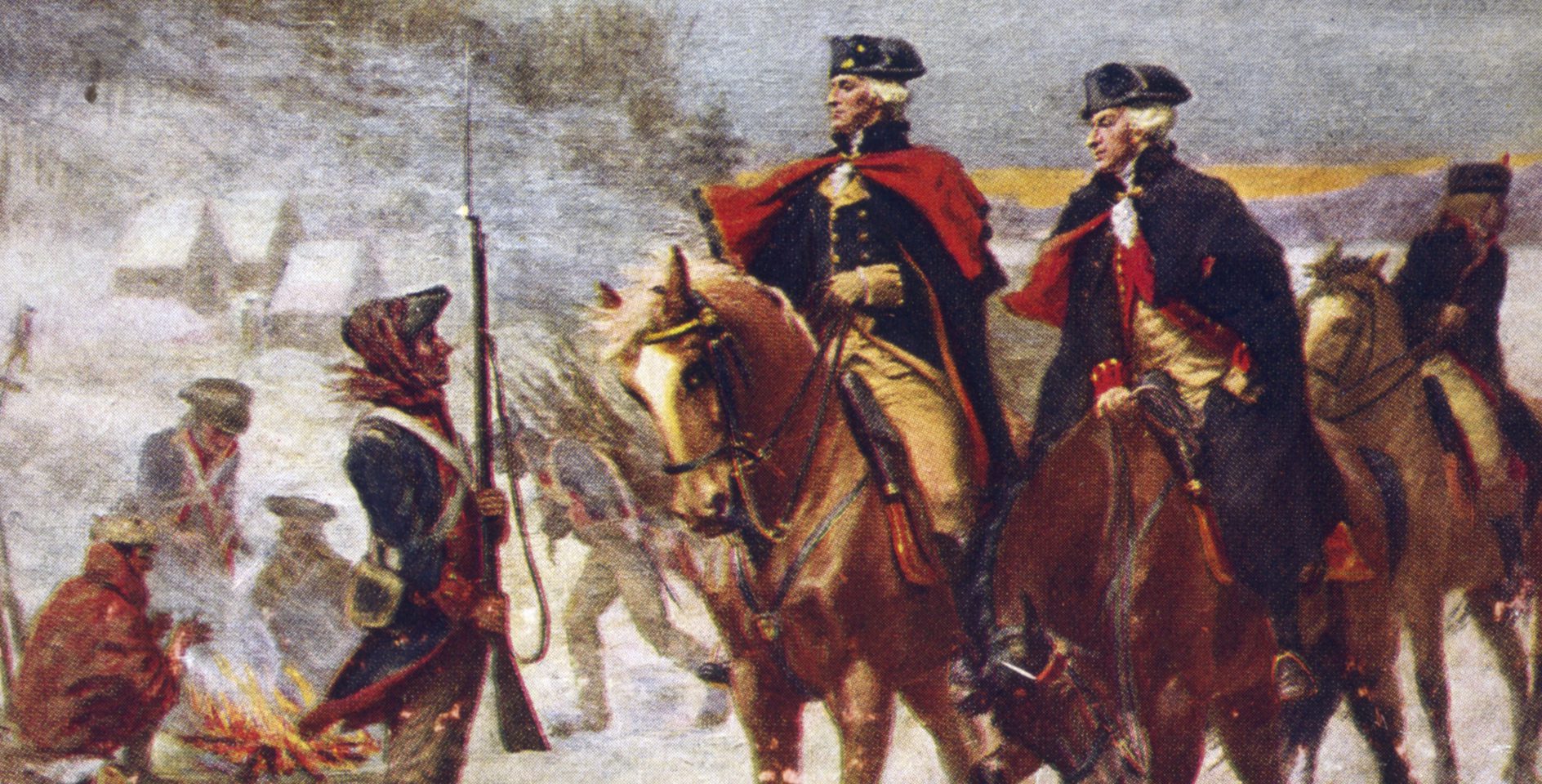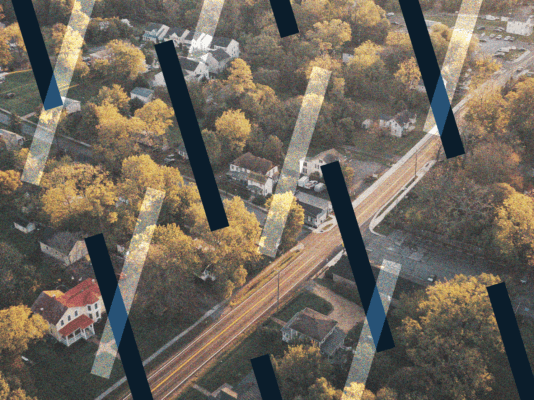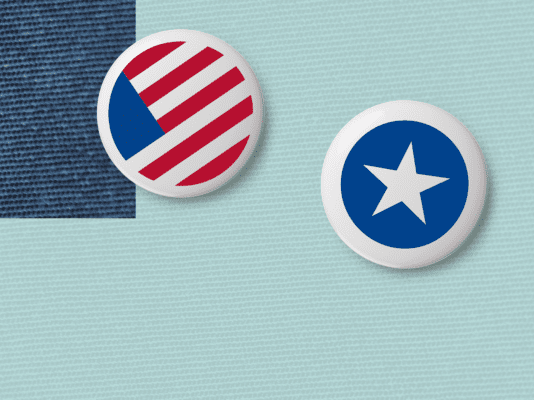One need not cross the Atlantic to find the famed Frenchman. Hundreds of U.S. cities, counties, lakes and landmarks bear his name. Statesmen have hailed him America’s “beloved son.” And in 2002, Congress posthumously named him an honorary U.S. citizen, a rare designation granted to just five others before him.
But to know the Marquis de Lafayette, France’s one-time wealthiest orphan who committed himself as a teenager to securing the liberty of a land and a people not his own, is to know a friendship that fueled this patriot’s zeal: the father-like kinship of General George Washington, a man 25 years his senior.
Embedded here are important lessons on leadership and the value of investing in the lives of those without a father of their own.
‘Tempestuous’ waters
When Lafayette sailed into Boston harbor on April 27, 1780, the newly formed United States found itself in the throes of war with Britain. Five years of bloodshed had passed since “the shot heard round the world,” as Ralph Waldo Emerson later poeticized, marking the beginning of the American Revolution at Lexington and Concord.
“I am now Imbarkd on a tempestuous Ocean from whence, perhaps, no friendly harbour is to be found,” Washington wrote shortly after his unanimous election as commander in chief of the Continental Army in 1775.
America, in 1780, marched at musket’s edge of liberty or bondage.
But Lafayette’s springtime arrival aboard the French frigate L’Hermione signaled a turning of the tide. The 22-year-old marquis, who first sailed to America three years earlier to serve as a major general in the Continental Army, bore official secret word that France’s King Louis XVI had commissioned six French ships and 6,000 infantry to aid the United States in its long-drawn effort to throw off the yoke of Britain’s bondage.
“I have affairs of the utmost importance that I should at first Communicate to You alone,” the seasick-prone Lafayette penned in a letter on that April day in the harbor. The recipient? His “dear General,” Washington, from “the hand of Your Young Soldier.”
By then, the two had forged an unlikely friendship, one that would only continue to flourish until Washington’s death in 1799. The “father of his country” had become, in essence, the adoptive father of America’s adopted son.
Lessons from an ‘adoptive’ father
We ought not fashion idols of flawed mortals—Washington, while measured by history as a man of notable character, had his faults, as did Lafayette. But neither should we discount their positive examples. The exemplary lessons found in Washington toward his adopted son are many.
Here, in snapshot, are six.
1. A father to the fatherless
Washington, to his own disappointment, never had biological children. He stepped in, though, as a surrogate father and grandfather to the offspring of his wife, Martha, a widowed mother when the two wed. And he stepped out, into the life of Lafayette, who was young enough to be his son.
The American commander in chief and the French marquis shared a common familial identity: both lost their fathers at a young age. Washington’s father died when he was 11 years old; Lafayette’s father was killed in battle before he turned two years old, and his mother died when he was 12.
Perhaps that’s one of the many reasons Washington took an immediate liking to Lafayette—he could identify. He, too, had tasted the bitter fruit of fatherlessness. In the absence of his own father, Washington had looked to his older half-brother, Lawrence, as a father figure. He proved something of the same to Lafayette.
2. A ‘compass’ in the storm
First landing ashore in America at age 19, the glory-seeking Lafayette, like everyone, needed direction. But he was eager to know the way. And he’d look to and find his course in Washington.
“I am here to learn, not to teach,” he told the commander in chief, one month after their first meeting in August 1777.
Such sentiment continued across the years and across the seas, captured in Lafayette’s many letters to Washington.
“I Hope you will approuve my conduct and in every thing I do I first consider what your opinion would Be Had I an opportunity to consult it,” Lafayette wrote Washington from France during peace negotiations in June 1782. Two years later, still navigating France’s political waters, Lafayette again looked to Washington: “You Will Be My Compass, my dear General,” he wrote, announcing plans for a third voyage to America.
Whether side-by-side in camp or separated by ocean and continent, Lafayette looked to the man he called “friend and father” to chart his way. He’d follow his adoptive father’s footprints on American soil and seek his shadow across the sea.
3. A help to the hurting
On September 11, 1777, Lafayette suffered a musket’s blow to the left leg while serving with Washington at the Battle of Brandywine. Lafayette’s 9/11 was met with the greatest possible first-response: Washington ordered his own personal physician to aid him. “Take care of him as if he were my son,” Lafayette later recalled the general saying, “for I love him the same.”
Whether those were in fact Washington’s words, biographer David Clary observes in Adopted Son, we cannot know for sure. But Lafayette’s recollection of that hour of need says something powerful, at the least. The then-20-year-old wounded warrior saw the 45-year-old commander as the man who’d bring him the best of help to heal his hurts. A balm to the broken.
4. A leader inclined to grow
Many of the founding fathers carried uneasy consciences about slavery. And Washington was no exception. Yet Lafayette, who developed strong convictions toward emancipation and nudged Washington toward the same, may have played some part in stirring his beloved father’s uneasy conscience into unhesitant action.
Washington’s surviving will, for example, ordered the release of all of his slaves upon Martha’s death. His elderly and sick slaves, directed the general, should be cared for by the estate. Orphaned slaves should be taught to read and write. “Every part” of that directive, he willed, should “be religiously fulfilled” and “without evasion, neglect or delay.”
A strong leader, Washington demonstrated in death, grows and is teachable.
5. A life and conviction to replicate
Lafayette labored for liberty alongside Washington in the quarters of Valley Forge and on the battlefields from Brandywine to Yorktown, where he helped signal the end of the American Revolution. That ultimate victory might not have arrived without the marquis’ successful petition of the French king for France’s additional aid.
But he also carried the torch of freedom back to his native country. Among his efforts: In 1789, he drafted France’s Declaration of the Rights of Man and of the Citizen, a formative work inspired by the Virginia Declaration of Rights and the Declaration of Independence. He also worked toward emancipation, including serving as a founding member of the abolitionist Society of the Friends of the Blacks in Paris. In that vein, he was, commendably, ahead of the times in America.
Closer to home, Lafayette named his son George Washington, in honor of his father figure, and named a daughter Virginie, in honor of Washington’s native state.
He believed in a man and his mission. He believed others should too. And he wanted his father’s name to follow him, stamped on his own children.
6. A relationship to remember
Lafayette’s warm memory of Washington would long follow his beloved general’s death. In 1824, at the invitation of Congress, Lafayette returned to the United States for a 13-month farewell tour, visiting all 24 states. That fourth and final trip across the ocean included a visit to Washington’s home, Mount Vernon, where he is entombed. The 68-year-old marquis spent an hour alone at the tomb, notes historian James Gaines in For Liberty and Glory. The last surviving general of the Revolutionary War emerged, appropriately, teary-eyed.
The mark of a father would forever remain on the one-time orphan’s heart. He found in that relationship far greater riches than the fortune he had inherited in France. He could not forget.
Washingtons and Lafayettes in our own time
Two centuries later, Americans cannot help but be reminded of Lafayette. Last year, France even christened a replica frigate of L’Hermione to remember and retrace the marquis’ 1780 trans-Atlantic voyage.
But we’d be remiss to forget the father-son kinship that shaped the marquis. The Washington-Lafayette relationship is, in many ways, a reflection of the fatherly relationship the Apostle Paul extended to Timothy, the son of an unbelieving Greek who may have died before the decades-older apostle met the young man he addressed as “my true child in the faith” (1 Tim. 1:2).
Paul charged his spiritual son to “wage the good warfare, holding faith and a good conscience,” even as some have rejected such teaching and “made shipwreck of their faith” (1 Tim. 1:18–19). He urged him to make every effort to replicate his faith in others, to “entrust” what he had learned “to faithful men who will be able to teach others also” (2 Tim. 2:2).
Herein lies a charge to us.
Somewhere a fatherless son like Lafayette or Timothy needs a Washington or a Paul in his life—a compass pointing toward freedom, a safe harbor from sin-sickness in the storm. That young man or boy needs to know “the Father of the fatherless” (Psalm 68:5). He needs to find in Christ, through the mentorship of another, “the Spirit of adoption as sons, by whom we cry, ‘Abba! Father!’” (Rom. 8:15).
And, conversely, each Washington needs a Lafayette, each Paul a Timothy, for therein one can likewise find a sort of freedom and calm amid the “tempestuous” waters, the kind that Washington sought and found in Lafayette.
Learning from Washington and heeding the call of Paul, may we help other young men to bear our Father’s name and claim our eternal citizenship. Let’s point them to the hope we have “as a sure and steadfast anchor of the soul” (Heb. 6:19), to the One who shows “his wondrous works in the deep” (Psa. 107:24). Let’s lead them to him who can still the storm and hush the sea and bring them safely “to their desired haven” (Psa. 107:29–30).
We don’t even need to cross the Atlantic to do so.










